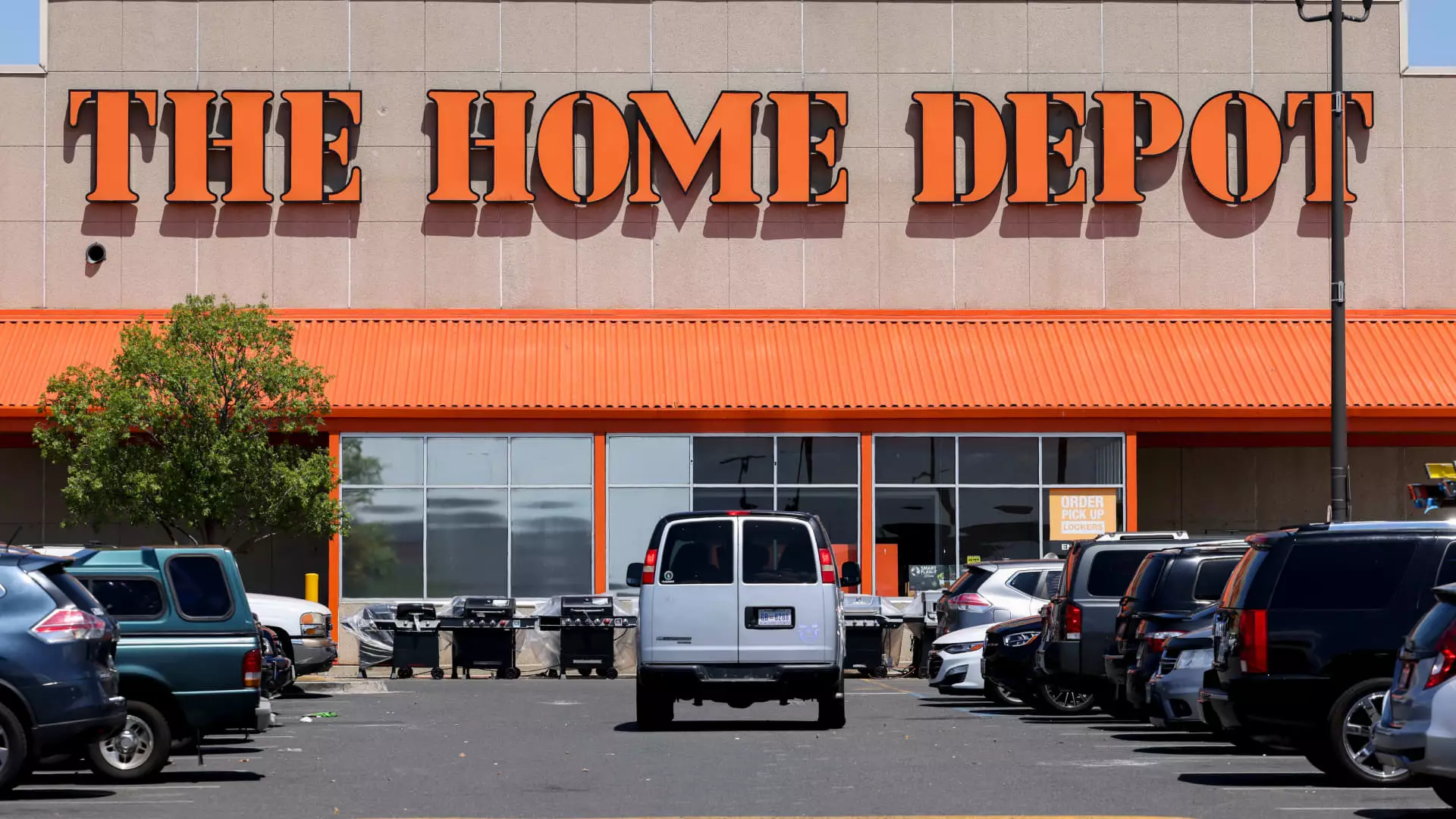The retail sector is often a litmus test for economic conditions, as consumer spending directly reflects economic health. Two major players in this space, Home Depot and Best Buy, are currently under the microscope of Wall Street analysts. While Home Depot seems poised for growth, analysts are adopting a more cautious stance regarding Best Buy. This article delves into the current outlook for both companies, analyzing market predictions and economic indicators.
Recent actions by Telsey Advisory Group indicate a bullish sentiment toward Home Depot. The firm upgraded its rating from a hold to a buy-equivalent “outperform,” projecting a significant jump in stock value from $360 to $455 within a year. This almost 14% upside offers a glimmer of hope for investors, particularly as the company is set to report its third quarter earnings soon. Telsey anticipates “continued softness” in sales for the third quarter, yet forecasts a rebound in both earnings and revenue growth by 2025.
Several economic factors are projected to propel Home Depot forward. Lower mortgage rates, ongoing hurricane recovery efforts, and favorable comparisons to the high demand era following the pandemic are expected to act as catalysts for growth. Crucially, Home Depot’s fundamentals, particularly its strong business in professional services supporting complex projects, enhance its prospects for capturing market share. Analysts at Telsey predict Home Depot will outperform the S&P 500, which speaks volumes about their confidence in the retailer’s resilience.
The overall economic climate, characterized by moderating inflation and a more relaxed monetary policy by the Federal Reserve, further supports this optimistic outlook. With the Fed’s recent interest rate cuts making mortgages more affordable, Home Depot stands to benefit from an uptick in sales as homeowners engage in renovations. The stock has surged over 2.5% recently, benefitting from a broader market rally. As Jim Cramer notably highlighted, patience may be key as economic changes take time to percolate into the housing market.
In stark contrast to Home Depot, analysts at Citi recently lowered their price target for Best Buy’s stock from $115 to $109, while maintaining a buy rating. The caution stems primarily from the potential impact of President-elect Donald Trump’s proposed tariffs on Chinese imports. Such tariffs could pose a significant challenge for Best Buy, given that a large percentage of its products are sourced from China. This geopolitical headwind has already prompted the stock to drop 2.5% this week, as investors grapple with the uncertainty.
However, it is not all negative for Best Buy. Citi analysts pointed out that the artificial intelligence-driven tech replacement cycle could provide a counterbalance to the tariff-related challenges. As consumers increasingly look to upgrade their gadgets—smartphones and computers alike—Best Buy could still see a surge in sales. This bifurcated outlook suggests that while there are clear risks, the potential for income generation remains robust.
The relationship between interest rates and consumer electronics sales is also pivotal. If falling interest rates do lead to an upturn in housing sales, Best Buy could capitalize on increased demand for major purchases—appliances, televisions, and other high-ticket items. This dynamic mirrors the opportunities presented for Home Depot, indicating that both retailers may ultimately benefit from any broader economic recovery.
The varying outlooks for Home Depot and Best Buy serve as a microcosm of the challenges that retailers face in a complicated economic environment. While Home Depot appears to be on the verge of a growth spurt facilitated by favorable economic conditions and robust business fundamentals, Best Buy’s exposure to potential tariffs creates uncertainty regarding its immediate prospects.
Investors in Home Depot seem poised for possible gains, while those in Best Buy may need to brace for a more turbulent ride. Nevertheless, the tech replacement cycle continues to underpin Best Buy’s potential, suggesting the retailer may still flourish in a shifting landscape. As Cramer pointed out, what happens in the upcoming earnings reports will be crucial. The broader implications for both companies may hinge on their ability to navigate these economic currents effectively.
As the retail sector remains a vital indicator of consumer sentiment, staying informed about these market trends is essential for investors. The unfolding journey for both Home Depot and Best Buy will certainly be one to watch.

